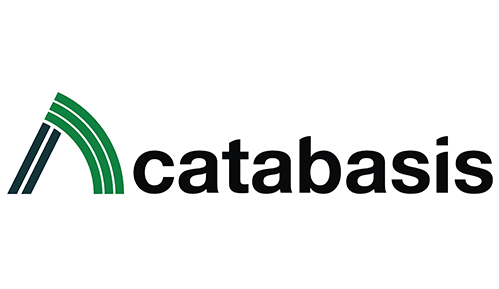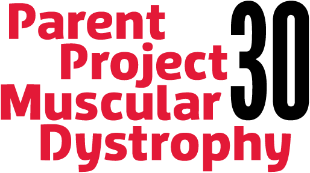
Catabasis Pharmaceuticals, Inc. announced the initiation of PolarisDMD, the Company’s Phase 3 trial for edasalonexent in Duchenne muscular dystrophy.
PolarisDMD clinical trial sites across the United States will open in the coming days for enrollment of the Phase 3 PolarisDMD trial, with enrollment expected to run through this year and into next year. Additional sites in Australia, Canada, Europe and Israel are also expected to open early next year.
Catabasis has also shared a special edition of the edasalonexent newsletter (download PDF), focused on PolarisDMD trial initiation and information about edasalonexent.
Read the release from Catabasis:
Catabasis Pharmaceuticals Initiates Phase 3 PolarisDMD Clinical Trial For Edasalonexent In Duchenne Muscular Dystrophy
— Pivotal Study of Novel Inhibitor of NF-kB, a Key Driver of Skeletal Muscle Disease and Cardiomyopathy in Duchenne —
CAMBRIDGE, Mass.–(BUSINESS WIRE)–Sep. 25, 2018– Catabasis Pharmaceuticals, Inc. (NASDAQ:CATB), a clinical-stage biopharmaceutical company, today announced the initiation of PolarisDMD, the Company’s Phase 3 trial for edasalonexent in Duchenne muscular dystrophy (DMD). Edasalonexent inhibits NF-kB, which is the key link between loss of dystrophin and disease pathology and plays a fundamental role in the initiation and progression of skeletal and cardiac muscle disease in DMD. The PolarisDMD trial will evaluate the efficacy and safety of edasalonexent in patients with DMD and is intended to support an application for commercial registration of edasalonexent. Top-line results from the Phase 3 PolarisDMD trial are expected in the second quarter of 2020.
PolarisDMD clinical trial sites across the United States will open in the coming days for enrollment of the Phase 3 PolarisDMD trial, with enrollment expected to run through this year and into next year. Additional sites in Australia, Canada, Europe and Israel are also expected to open early next year. In total, the PolarisDMD trial is expected to include approximately 40 clinical trial sites globally. The trial design was informed by discussions with the U.S. Food and Drug Administration (FDA) as well as input from treating physicians, patient organizations and families of boys affected by Duchenne.
“We are very excited to initiate our Phase 3 PolarisDMD trial as we believe edasalonexent has tremendous potential to become the new standard of care for all affected by Duchenne, regardless of mutation type and from the time of diagnosis throughout their lifespan,” said Joanne Donovan, M.D., Ph.D., Chief Medical Officer of Catabasis. “Edasalonexent inhibits NF-kB, which plays a fundamental role in skeletal and cardiac muscle disease in Duchenne. In the MoveDMD trial, edasalonexent slowed disease progression and preserved muscle function.”
The Phase 3 PolarisDMD trial is a one-year, randomized, double-blind, placebo-controlled trial. Catabasis plans to enroll approximately 125 patients ages 4 to 7 (up to 8thbirthday) regardless of mutation type who have not been on steroids for at least 6 months. Boys on a stable dose of eteplirsen may be eligible to enroll. The primary efficacy endpoint will be change in the North Star Ambulatory Assessment score after 12 months of treatment with edasalonexent compared to placebo. Key secondary endpoints include the age-appropriate timed function tests time to stand, 4-stair climb and 10-meter walk/run. Assessments of growth, cardiac and bone health are also included. Two boys will receive 100 mg/kg/day of edasalonexent for each boy that receives placebo and after 12 months, all boys are expected to receive edasalonexent in an open-label extension.
“We are so glad to bring edasalonexent into Phase 3 for boys affected by Duchenne that could benefit from this potential therapy,” said Richard Finkel, M.D., Chief, Division of Neurology, Department of Pediatrics at Nemours Children’s Health System and a Principal Investigator for the Phase 2 and Phase 3 trials with edasalonexent. “With the stabilization of muscle function and excellent safety profile seen with edasalonexent treatment in the MoveDMD trial, patients and families are eager for a treatment for Duchenne that has demonstrated slowed disease progression in the clinic.”
“PPMD has conducted preference studies of those impacted by Duchenne to understand what is most important for novel therapies. Families responded that their highest priority is to stop or even slow disease progression and maintain muscle function,” Pat Furlong, Founding President and Chief Executive Officer of Parent Project Muscular Dystrophy (PPMD). “We are enthusiastic to see edasalonexent, with these potential effects, entering the Phase 3 PolarisDMD trial as an oral therapy that could treat all of those affected by Duchenne.”
Edasalonexent has been shown to preserve muscle function and substantially slow DMD disease progression across all four assessments of muscle function (the North Star Ambulatory Assessment, time to stand, 4-stair climb and 10-meter walk/run) compared to control in the MoveDMD® Phase 2 trial and open-label extension. Preclinical data and clinical biomarker data from the MoveDMD Phase 2 trial suggest that edasalonexent could have potential benefits in skeletal muscle, diaphragm and heart. Edasalonexent has been well tolerated through more than 45 patient-years of treatment with no safety signals observed.
More information about the Phase 3 PolarisDMD clinical trial will be available on www.clinicaltrials.gov in the coming days or contact the Catabasis clinical team via email at DMDtrials@catabasis.com.



 by: Parent Project Muscular Dystrophy
by: Parent Project Muscular Dystrophy

